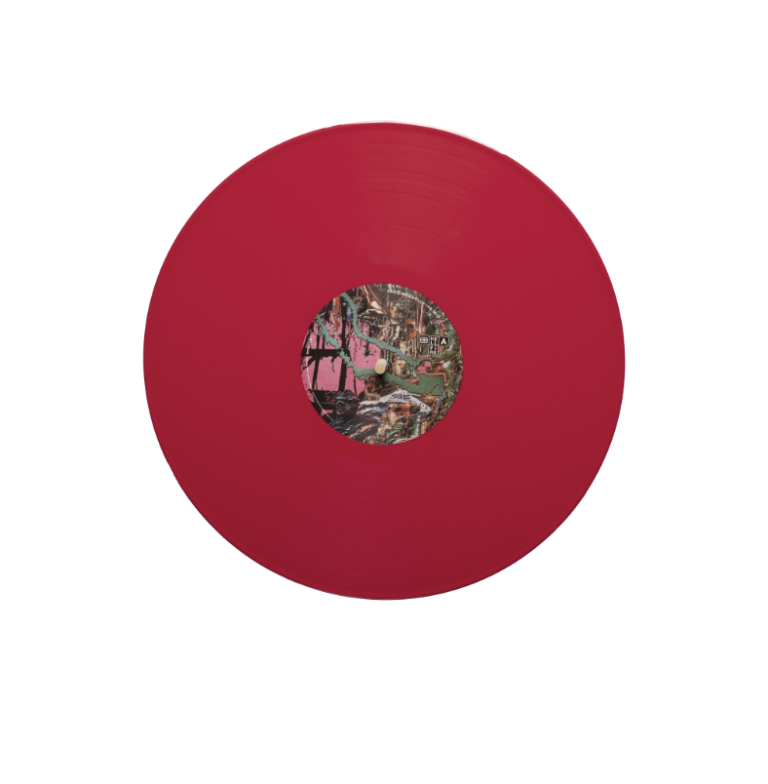
“If you just want funky-looking records that sound awesome, that’s pretty much what we’re about,” says Frederico Casanova. “We’re a boutique shop. We’re here for the locals.”
Founded by Casanova and Michael Wodniki in 2018, Softwax is an independently owned record-pressing plant operating out of Northeast Philadelphia and catering to local and independent artists looking to press music in a now-vintage format. “We will help you from concept to creation,” Casanova says. “DIY does not mean doing it alone.”
Forty years ago, physical music media was split between vinyl records and cassette tapes. According to the Recording Industry Association of America, vinyl records made up half of the market and the other half was cassette tapes. Forty years later, vinyl had dropped to less than 20% of the market, and total units sold dropped from 673.9 million units to 249 million.
But the physical media sphere is still active and small independent groups, like Softwax, keep the format afloat. In fact, vinyls are having a resurgence. Major labels are reinvesting in cutting records, causing production delays. “We had to start dealing with major labels, and that was never really part of our business plan,” Casanova says. “I think now we’re finally able to pull back capacity from the majors and give it back to the independents that you know we set this thing out for.”
Casanova and Wodniki built their business to provide artists with high-quality records to spread their music and allow them to profit from their art, as a physical product legitimizes a musician and their work in the eyes of the public. Softwax’s mission is rooted in Casanova’s background as a small artist playing and hosting shows around Philadelphia.
The first rumblings of what would become Softwax began in 2015 with Casanova and Wodniki entrenching themselves in the music scene in Philly. They saw a need for a locally run small musician-focused plant. “All of our friends pretty much told us the exact same stories: ‘I had to wait about like a whole year to get our records!’” says Casanova. “In 2018 we finally got an investor and from there we just got bitten by the vinyl bug, I suppose.”
And the bug is spreading. For me, collecting records started in middle school after I was swept up in the wave of warm analog sound, expensive plastic circles, and thinking I may be cooler than you. My first record was Daft Club, a remix record of Daft Punk songs. The memories I associate with that first trip to the store trump the memories listening to the record. For collectors, each record is a story.
Families see their children getting into records and remember the box of old LPs in their parents’ house filling them with good memories. There is an obligation to continue this feeling, family heirlooms have now taken the form of records.
Casanova’s father had gifted him many of the records he collected while living in the Dominican Republic. “Those are my favorite records. The Beatles. I love The Beatles,” says Casanova. “A lot of those sound like complete shit. But the ones that sound great, sound great and the ones that are in good condition, they’re still kicking ass and they sound awesome.”
I like to think the DIY ethos is the core of modern art and specifically Philadelphia’s art scene. Each day there is something to consume from the community; it could be an art gallery, concert, play, open mic, art mart, rave, clothing swap, or mutual aid fundraiser. This attitude was essential to the success of Softwax. “We wouldn’t be where we are now if it wasn’t for the support from everybody in the community,” Casanova recalls.
“When we first started a couple of months before the pandemic, we were planning on slow growth,” Casanova says. “We even had it planned out with our investors. We were going to have about five orders in the first month, six the next month, 8 the next, and slowly build up. By the first month, we had 15 or something like that and then it kept going up and up. Until March, when the pandemic happened and in the end most of those orders got canceled. It was tough.”
Through brokering deals with major labels, the infant record plant managed to stay afloat. But the road to opening a full-scale plant was a long journey that made the setback hurt more. “It took us about six to eight months to finally find the location that we got now. A lot of these factories in North Philly became residential places, gyms, or Trader Joes and Sprouts and whatnot,” says Casanova. They are currently located in the Bond Building in Lawncrest. The conversion of factories into residential living gutted most of the infrastructure that Casanova needed.
Since the late ‘80s and early ‘90s record shops and plants have been closing their doors due to the rise of CDs and the internet. Sony Music installed its first record-cutting lathe in early 2017, marking a shift back towards vinyl since ceasing its production in 1989. Other major players in the music industry, like Jack White of The White Stripes and his company Third Man Records, have been a major factor in the resurgence.
“Majors, they pretty much have a radar whenever any plant opens up, they’ll go and scope it out,” Casanova says. “But luckily, I did have a couple of friends that were part of that conglomerate and so it helped. For the most part, majors have their hands in all the cookie jars.”
There were only 32 record pressing plants worldwide in 2017, according to the Vinyl Record Manufactures Associate, of which Softwax is a member. Now there are over 200 plants in operation with the larger operations expanding their capacity. Through the work of small groups like Casanova or larger ones like White, records have seen a rebirth.
“We’re just a couple of cats in Philly,” Casanova says, “just doing the damn thing.”